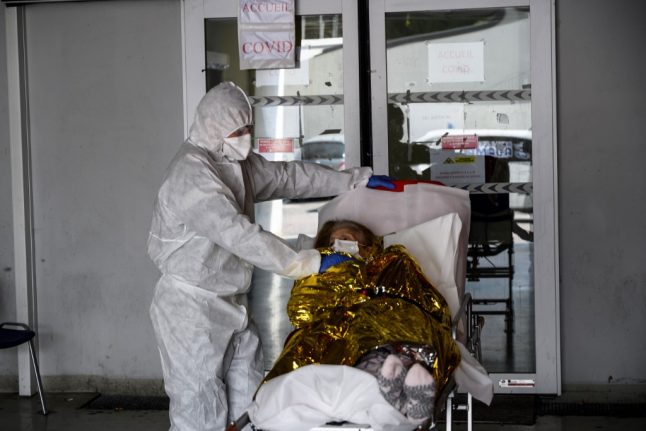France has for eight days in a row recorded an overall fall in the number of patients in intensive care, but has now seen the second consecutive daily fall in the total number of hospitalised patients.
The country's Director General of Health Jérôme Salomon said the figures were an “important indicator” that would be closely watched in the coming days.
At his daily briefing, Salomon stated that France's death toll now stands at 17,920 – 11,060 of whom died in hospitals and 6,860 in the country's Ehpads nursing homes for the elderly.
France, unlike England, Spain and Italy, is now including deaths in care homes in its coronavirus death tolls although there is as yet no comprehensive data of people who have died in their own homes.
READ ALSO Yes, France's coronavirus death toll is terrible, but that is not the full story
In total 31,035 people remain in hospital with coronavirus, 6,248 in intensive care.
But there are 209 fewer intensive care patients than yesterday and 474 fewer in hospital.
In the last 24 hours 417 people have died in hospital a number that, while it remains high, has been reasonably stable over the past week, giving rise to the hope that cases in France have plateaued.
Salomon added: “It's very slow but it is moving in the right direction.
“There is still a totally abnormal situation in the intensive care units.”
It is within this context that president Emmanuel Macron has laid out a timetable for the loosening of the country's strict lockdown conditions – although no restrictions will be lifted until May 11th.



 Please whitelist us to continue reading.
Please whitelist us to continue reading.
Member comments